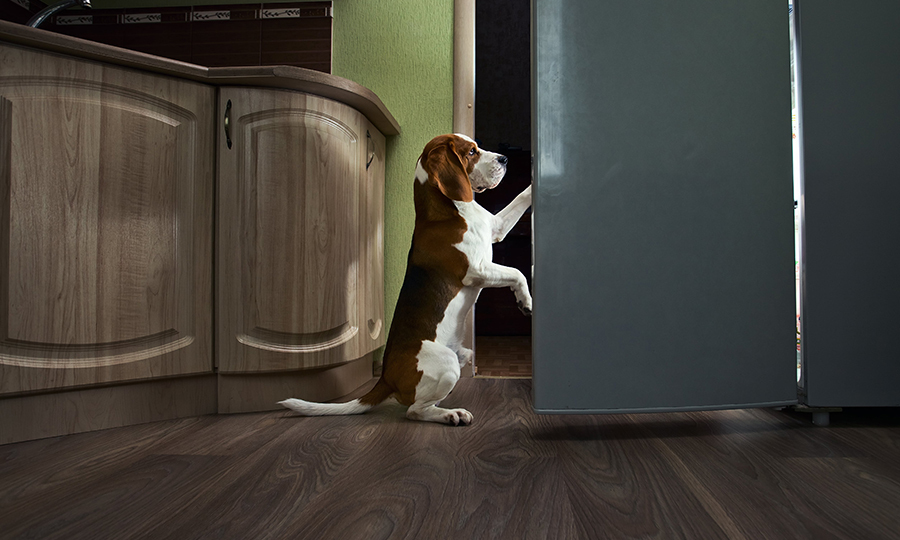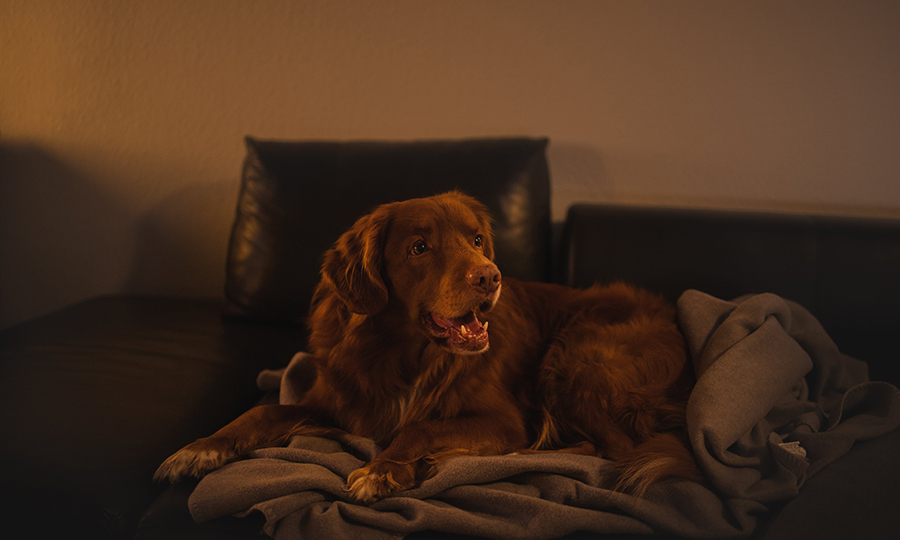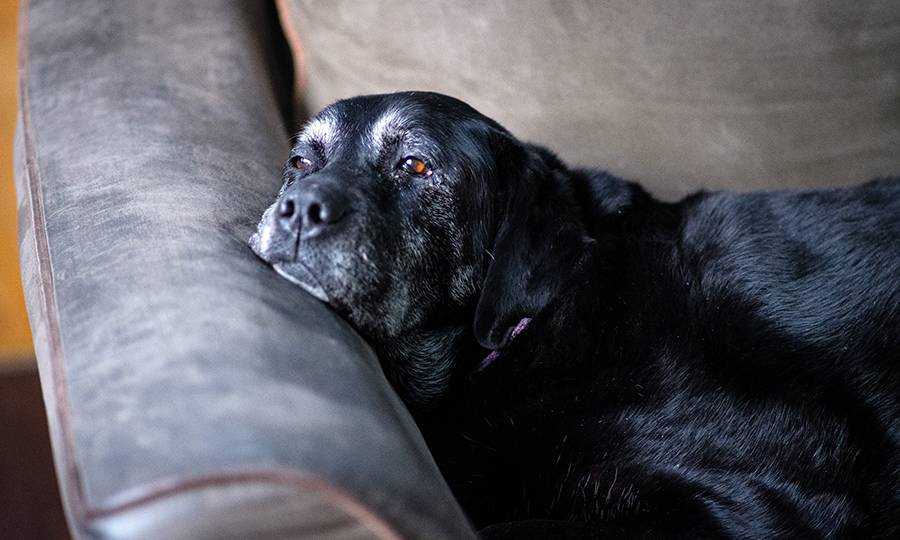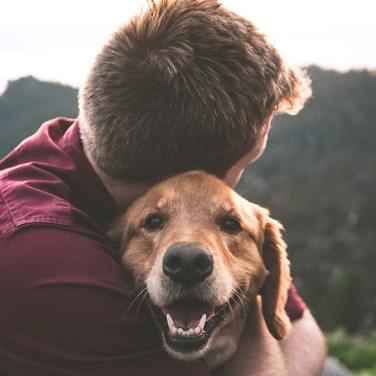ARTICLE
Why Do Dogs Bark at Night? How to Stop Your Dog from Barking
페이지 정보
본문


Why dogs bark at night
Dogs barking at night can be a frustrating and even distressing experience for both the dogs and their owners. It is important to understand why dogs bark at night to address the behavior so that both dog and parent can live in peace together. Typically, the reason your dog barks at night may be the same reason your dog barks during the day. This also means that there is no one-size fit answer as to why your dog may bark particularly at night. However, we have compiled a list of the 8 most common reasons why dogs bark at night that you may want to look out for to find which one your dog may relate to! Alongside the 8 reasons why we have also provided some solutions and advice on how to stop dogs from barking at night.
-
Dogs bark at night due to separation anxiety
Dogs are social animals and may suffer from anxiety when left alone for extended periods, including overnight. Separation anxiety in dogs is a condition where the dog experiences distress or behavior problems when separated from their owner or family. In addition to barking, dogs with separation anxiety may also exhibit symptoms such as whining, howling, chewing, digging, and attempts to escape. This behavior is not due to misbehavior or lack of obedience, but rather a deep attachment to their owners. It is important to gradually acclimate the dog to being alone, provide plenty of physical and mental stimulation, and potentially seek the help of a professional dog trainer or behaviorist.
Advice:To alleviate separation anxiety, provide plenty of positive reinforcement and exercise during the day. Gradually acclimate the dog to being alone for short periods, and consider using a dog-specific pheromone diffuser or anti-anxiety medication under the guidance of a veterinarian. However, on the flip side, it may also help to simply bring your dog into your bedroom during bedtime. Many pet parents sleep with their animals on their beds but keeping your dog as close to you during the night with their bed beside yours is viable as well! If your puppy is still being house-trained or your dog is having accidents, a crate is an alternative to keeping your dog as close to you during the night as possible.
-
Dogs bark at night to seek attention
Attention-seeking behavior in dogs occurs when a dog barks or otherwise demands attention from their owner. This behavior may be driven by hunger, thirst, or the desire to play. It is important to establish clear rules and boundaries with your dog and avoid reinforcing or acknowledging their attention-seeking behavior. Providing the dog with plenty of exercise and mental stimulation can also help to reduce attention-seeking barking during the night.
 Advice:
Advice:A common mistake pet parents make when responding to attention-seeking barking is petting them, speaking in a soothing tone, and offering treats. This only teaches the dog that they can get what they want through this continued behavior. To prevent attention-seeking barking, ignore the barking and reward quiet behavior. Provide plenty of positive reinforcement and interaction during the day to meet the dog's needs for attention. This may take time and prove to be a challenge, but with consistency and patience, your dog will unlearn this behavior over time. In the meanwhile, consider purchasing some earplugs or a white noise machine to drown out the barking if this behavior is excessive.
-
Dogs bark at night due to territorial behavior
Dogs have a natural instinct to protect their territory and may bark at night in response to perceived threats, such as unfamiliar people or animals passing by. This behavior is often seen in breeds that were originally bred for guarding, such as German Shepherds and Doberman Pinschers. They do not understand the boundaries of your property and will consider any neighbor or mailman walking on the sidewalk as an intruder. This guard dog behavior may amplify during the night when several nocturnal animals begin their stroll in the streets. A dog's heightened senses will pick up on these “intruders” and address them accordingly.
Advice:Provide plenty of positive reinforcement and exercise during the day to tire your dog out. Consider using a dog-specific pheromone diffuser or anti-anxiety medication under the guidance of a veterinarian. Block the dog's view of potential stimuli that trigger the barking, such as passing cars or pedestrians. A simple example is to close the curtains or blinds around the house so they cannot easily see a passerby or any animals. With proper training, it may take time but an effective practice can be to reward and praise a dog during a significant pause after a barking fit. Eventually, over time your dog will understand that their silence is rewarded more heavily than when they believe they deserve a treat for alerting you of a threat to your property.
-
Dogs bark at night due to boredom or frustration
Dogs that are not provided with enough physical or mental stimulation may become bored or frustrated, leading to excessive barking at night. In the same way, we may start humming or tapping a pen on a desk to break a long period of silence while waiting or working on an assignment. Our dogs will experience the same sudden urge to break the long periods of silence during the night. This can be especially problematic for high-energy breeds such as Border Collies and Australian Shepherds.
Advice:To prevent boredom or frustration barking, provide plenty of positive reinforcement and mental stimulation with interactive dog toys, such as puzzle toys and obedience training. Increase exercise time and playtime during the day to tire the dog out. In the same way, children can be naturally sedated by burning as much energy during the day. If circumstances allow, a doggy day camp is a great solution to keep your pup stimulated all day and come back home beat for the night.

-
Dogs bark at night due to a medical issue or pain
Dogs can become fairly vocal to communicate that they are in distress. Distress in dogs can be caused by several reasons ranging from certain medical conditions, including cognitive decline, hearing loss, and pain, to simpler reasons such as hunger. It is important to have a veterinarian rule out any underlying medical conditions before addressing the barking behavior.
Advice:If a medical issue is suspected as the cause of barking at night, consult with a veterinarian for a proper diagnosis and treatment plan. Pain is typically a common reason for barking at night and is proven to be difficult to diagnose. If it seems there is no obvious cause for your dog to bark, it could be an internal medical issue that should be addressed. Signs of pain are hard to differentiate, but signs include limping, digestive issues, or difficulty breathing. Hunger is another common source of distress in dogs and may require adjusting feeding schedules to keep them feeling full during the night. An example is by breaking their meals into smaller more frequent meals throughout the day. A timed feeder can be a viable solution by scheduling a small meal in the middle of the night.
-
Dogs bark at night due to fear or phobias
Dogs may bark at night as a result of fear or phobias, such as the fear of loud noises. This type of barking is often accompanied by other signs of distress, such as shaking, panting, and hiding.
Advice:Consider seeking the help of a professional dog trainer or behaviorist, who can provide a customized behavior modification plan. At home, provide a safe and secure environment and lots of positive reinforcement. Gradually expose the dog to the feared stimulus in a controlled and positive manner, such as through counter-conditioning and desensitization training. It may also be an effective solution to use anti-anxiety medication under the guidance of your veterinarian.
-
Dogs bark at night to alert danger
Some dogs have a strong protective instinct and will bark at night to alert their owners to potential dangers, such as intruders or other perceived threats. This type of barking is often seen in breeds that were originally bred for protection, such as Rottweilers and Pit Bulls.
 Advice:
Advice:To address alert barking, provide positive reinforcement for quiet behavior, and provide plenty of exercise and mental stimulation during the day to tire the dog out. Consider obedience training to teach the dog to alert in a controlled and non-barking manner. It may take time but an effective practice can be to ignore their alert barking and wait for a significant pause for a treat in combination with a new verbal command. Eventually, over time your dog will understand that their silence is rewarded more heavily than when they believe they deserve a treat for alerting you.
-
Dogs bark at night due to old age

As your dog grows older, they may bark more often than they did in the past. As they age, pain becomes a more common issue, with joint aches and arthritis being common causes. Some senior dogs may also experience changes in their cognitive abilities, such as increased anxiety when left alone. Canine Cognitive Dysfunction Syndrome, also known as "dementia for dogs," can cause confusion and result in a loss of training. Your dog may bark unnecessarily due to not recognizing that they are at home and safe. Although this syndrome is often associated with old age, it can affect dogs as young as five years old, particularly in larger breeds.
Advice:Sadly, the aging process cannot be stopped, but your veterinarian can provide information on medications that can help. Pain is a frequent and widespread issue among older dogs who bark at night. Fortunately, there are several options available to manage this pain. Schedule a consultation with your veterinarian to discuss a pain management plan for your dog. Take into consideration the temperature of their environment as well. While we may prefer to sleep in a slightly chilled environment, cold temperatures can cause aches in their joints to feel worse in older dogs.
In each of these cases, it is important to work with a veterinarian and professional dog trainer to identify the underlying cause of the barking behavior and develop an effective plan to address it. Ultimately, positive reinforcement is key in helping to address or unlearn these habits for dogs barking at night. Scolding or punishment is never an effective solution for unwanted behavior in dogs. This will only teach your dog to fear you and may cause other behavioral problems due to anxiety.
Frequently asked questions related to why dogs bark at night
Why does my dog bark at night when I am not home?
Dogs may bark at night when their owners are not home due to separation anxiety, attention seeking, territorial behavior, boredom or frustration, medical issues, fear or phobias, or alerting to perceived dangers. It is important to identify the underlying cause and address it through behavior modification, training, or medical intervention as necessary.
How can I get my dog to stop barking at night?
To stop barking at night, it is important to address the underlying cause. If you can identify something within your control that triggers a barking fit, do what you can to remove that stimulus. This can involve behavior modification, training, providing plenty of exercise and mental stimulation, using anti-anxiety medication under the guidance of a veterinarian, or a combination of these strategies. In some cases, the trigger is something a vet can treat, so a health checkup, especially if the barking is new or otherwise unexplainable, can be important.
Is it normal for puppies to bark at night?
It depends on the reason for the barking. For the most part, yes! Some dogs may bark at night as an instinct to protect their territory, alert their owners to perceived dangers, or release excess energy or frustration. However, excessive barking at night can be indicative of an underlying issue, such as separation anxiety or boredom, and should be addressed. If you are concerned about your dog's barking at night, it is best to consult with a veterinarian or professional dog trainer for personalized advice.
Conclusion
Understanding the reasons why dogs bark at night is key to addressing and resolving the behavior. If your dog is barking at night, it is important to consider the underlying cause and address it through training, behavior modification, or medical intervention. By working with a veterinarian and a professional dog trainer, you can help your dog to live a happy and peaceful life. Hopefully, with the tips and advice provided in this article, you can try out one or two of our recommended practices to help everybody in your home get a good night's rest.
Read more on the Buddydoc blog page!

Buddydoc provides a weekly updated blog to keep you informed on the latest and best ways to prepare and take care of your pet all year round. Check out more articles you may be interested in!












